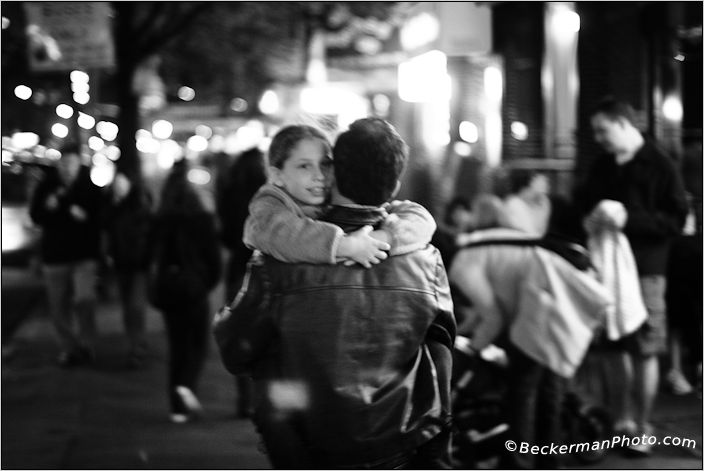While we pay attention to the memories of the tragedies or difficult circumstances that took place in our lives when we were growing up and recognize them as events that shaped us, we also have the opposite kinds of memories.
“Happy” memories too, can shape us and provide us with clues as to why we make the choices we make as we become adults.
“What is one of the neatest things that ever happened to you when you were growing up?”
Answering a few short questions about a happy memory can provide many clues as to what motivates us and why we make the choices we make throughout our lives.
As an example, here is a magical moment on a South Philadelphia trolley in the middle of World War II. While I was not yet three years old when it took place, this scene left an indelible imprint on me and helped me to understand why I am the woman I am today.
My father was taking me out for my first “big girl” ride in a trolley. My mother had dressed me in red rubber snow boots with fur around the top, a navy blue coat with matching leggings and a furry white hat that covered my ears. I had a fur muff for my hands, but as soon as we got down the steps to the sidewalk, my father took my hand and put it in his big, soft, warm hand that felt like the whole world lived inside it.
It was a cold day and there was snow and ice everywhere and so that I wouldn’t slip, my father picked me up and carried me in his arms. As he walked, he sang an old song to me about me having rings on my fingers and bells on my toes and just like the song said, I felt like I was Princes Mumbo Jumbo up on a throne for the whole world to see and that my father was my prince—my dark haired, United States Navy prince in a pea coat and bell bottomed trousers.
When the trolley came my father gave me some money to put into the box and picked me up again so I could hold onto one of the trolley straps. That was when I noticed that the trolley was filled with men who were all dressed alike. “Look at all the mailmen, Daddy,” I said, my child’s voice floating much louder than I thought it would in the drafty air.
A sea of bright, laughing faces smiled back up at me with what I felt was naked admiration in their eyes. My father told me they weren’t mailmen, honey, they were soldiers. But I insisted, “They look like mailmen,” I said again, sure that my new big girl/Princes Mumbo Jumbo status made me right.
I was smitten by the happy swell of that audience. I was on my first trolley ride and I was cute and loved and smart and I could make people laugh and I suddenly knew it. When we got off the trolley a short distance later, everybody waved at us and said goodbye and as my father and I turned to walk down the street, the driver clanged the bell.
Writing down this little scene gave me an opportunity to examine what happiness looked like to me when I was a child and to ask myself what my “grown up” version of it was. From the scene I learned why I enjoy public speaking, why I like the attention of men in general (and one man in particular), and why I like to get dressed up and show off. It even helped me to understand which jobs I liked best and why.
Answering these few simple questions about this scene became a very effective exercise for me:
What is one of the neatest things that ever happened to you when you were a child?
What did it make you feel?
What do you do as a grown-up to recapturing those feelings?
How far would you go to keep getting those feelings?
Have you been able to recapture them in your life;
If not, why not?
And if not, what do you do instead and what are the trade offs you are willing to make?
A lot can come from examining the lessons that life gives us in the form of our memories, all of them, sad and glad as well.
Relephant:
10 Things to Give Up in Exchange for Happiness.
~
Author: Carmelene Siani
Editor: Travis May
Photo: beckermanphoto.com







Read 0 comments and reply